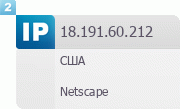Creating a Makefile for **EiskaltDC++** to compile it for **OpenWrt** involves cross-compiling the software for the target architecture (e.g., MIPS, ARM, etc.) used by your OpenWrt device. Below is a step-by-step guide to create a Makefile for EiskaltDC++ in the OpenWrt build system.
---
### **1. Set Up OpenWrt Build Environment**
Before creating the Makefile, ensure you have set up the OpenWrt build environment on your system. Follow these steps:
1. **Install Dependencies**:
```bash
sudo apt-get install build-essential libncurses5-dev gawk git libssl-dev gettext zlib1g-dev swig unzip time
```
2. **Clone OpenWrt Source Code**:
```bash
git clone https://git.openwrt.org/openwrt/openwrt.git
cd openwrt
```
3. **Update Feeds**:
```bash
./scripts/feeds update -a
./scripts/feeds install -a
```
4. **Configure the Build**:
```bash
make menuconfig
```
Select your target system (e.g., `Target System: Atheros AR7xxx/AR9xxx` for MIPS-based routers).
---
### **2. Create a Makefile for EiskaltDC++**
OpenWrt uses a specific format for Makefiles to build packages. Here’s an example Makefile for EiskaltDC++:
1. **Create a Directory for EiskaltDC++**:
```bash
mkdir -p package/network/eiskaltdcpp
cd package/network/eiskaltdcpp
```
2. **Create the Makefile**:
Create a file named `Makefile` with the following content:
```makefile
include $(TOPDIR)/rules.mk
PKG_NAME:=eiskaltdcpp
PKG_VERSION:=2.4.2
PKG_RELEASE:=1
PKG_SOURCE:=$(PKG_NAME)-$(PKG_VERSION).tar.gz
PKG_SOURCE_URL:=https://github.com/eiskaltdcpp/eiskaltdcpp/archive/v$(PKG_VERSION).tar.gz
PKG_HASH:=sha256_sum_of_the_tarball
PKG_BUILD_DIR:=$(BUILD_DIR)/$(PKG_NAME)-$(PKG_VERSION)
PKG_FIXUP:=autoreconf
PKG_INSTALL:=1
include $(INCLUDE_DIR)/package.mk
define Package/eiskaltdcpp
SECTION:=net
CATEGORY:=Network
TITLE:=EiskaltDC++ - Direct Connect client
URL:=https://github.com/eiskaltdcpp/eiskaltdcpp
DEPENDS:=+libstdcpp +libopenssl +zlib +libtinyxml2
endef
define Package/eiskaltdcpp/description
EiskaltDC++ is a cross-platform program that uses the Direct Connect protocol.
endef
define Build/Configure
$(call Build/Configure/Default,--with-openssl)
endef
define Package/eiskaltdcpp/install
$(INSTALL_DIR) $(1)/usr/bin
$(INSTALL_BIN) $(PKG_INSTALL_DIR)/usr/bin/eiskaltdcpp-* $(1)/usr/bin/
endef
$(eval $(call BuildPackage,eiskaltdcpp))
```
Replace `sha256_sum_of_the_tarball` with the actual SHA256 hash of the source tarball.
---
### **3. Add EiskaltDC++ to OpenWrt Configuration**
1. **Update Feeds**:
Ensure the package is recognized by OpenWrt:
```bash
./scripts/feeds update -a
./scripts/feeds install -a
```
2. **Enable EiskaltDC++ in Menuconfig**:
```bash
make menuconfig
```
Navigate to `Network -> EiskaltDC++` and enable it by pressing `M` (for module) or `Y` (to include it in the firmware).
---
### **4. Build EiskaltDC++**
1. **Compile the Package**:
```bash
make package/network/eiskaltdcpp/compile V=s
```
2. **Locate the Compiled Package**:
The compiled `.ipk` file will be located in `bin/packages/<target>/network/`.
---
### **5. Install EiskaltDC++ on OpenWrt**
1. **Transfer the `.ipk` File**:
Use `scp` to transfer the `.ipk` file to your OpenWrt device:
```bash
scp eiskaltdcpp_2.4.2-1_<target>.ipk root@<router_ip>:/tmp/
```
2. **Install the Package**:
SSH into your OpenWrt device and install the package:
```bash
opkg install /tmp/eiskaltdcpp_2.4.2-1_<target>.ipk
```
---
### **6. Run EiskaltDC++**
- Start EiskaltDC++ manually or configure it to run at boot.
- Use the command-line interface or a web interface (if available) to configure and use the client.
---
### **Notes**
- If EiskaltDC++ requires additional dependencies, ensure they are listed in the `DEPENDS` section of the Makefile.
- If you encounter issues during compilation, check the build logs in `logs/` for errors.
Let me know if you need further assistance!

